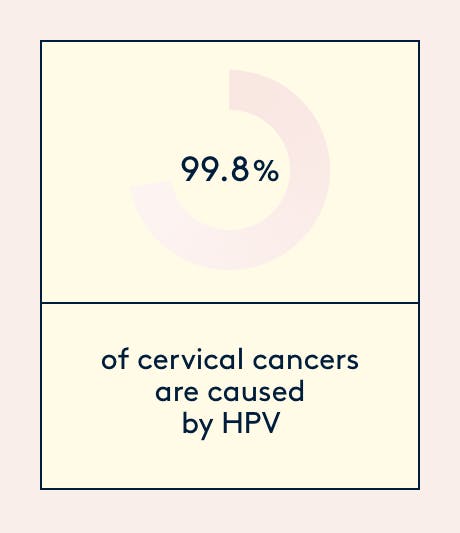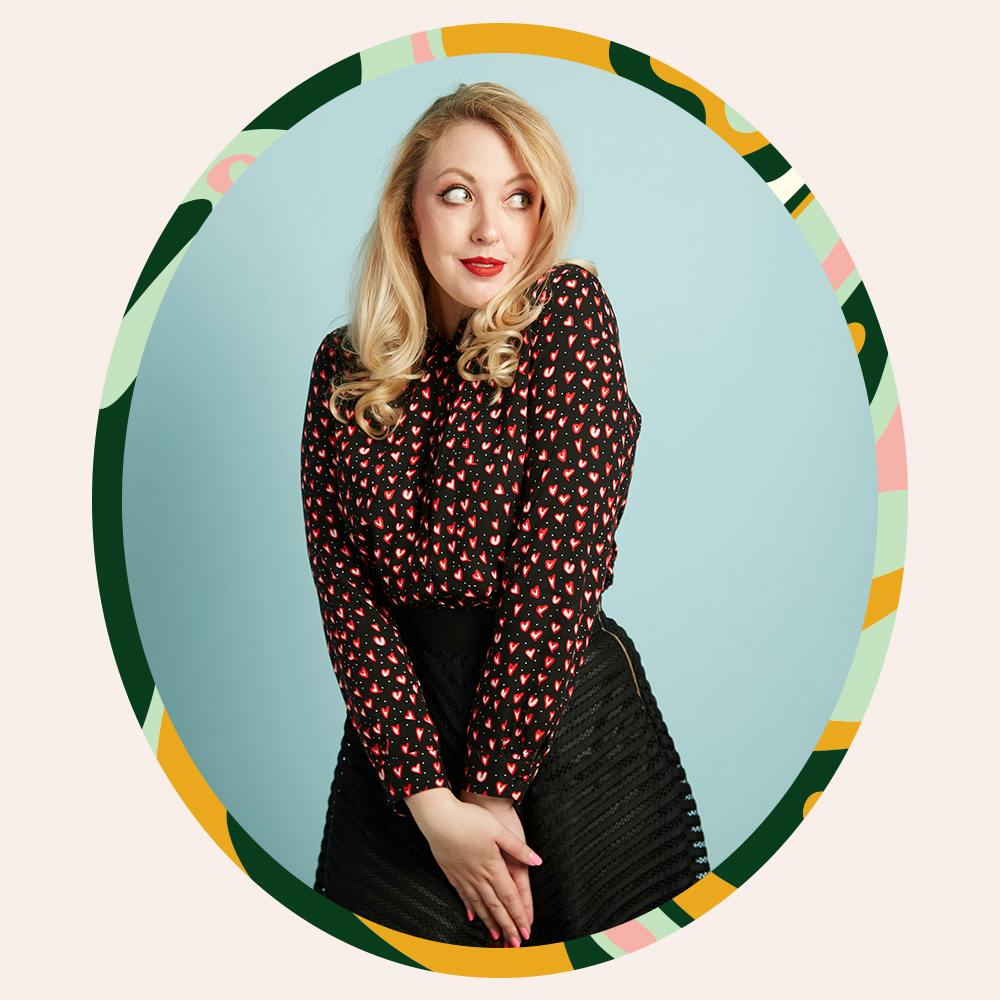Photography by Amit & Naroop
Was anyone else's sex ed at school somewhere between rubbish and non-existent?
I remember one afternoon, when I was 10 or 11, sitting on the incredibly scratchy, grey classroom carpet with the other girls in my year. We were given a lightning speed lesson about periods by a teacher who was either nervous or disinterested, whilst the boys were shipped off to a neighbouring room and informed about their equivalent of periods: wet dreams.
About a year later I heard a playground rumour about something called a condom, so I asked my mum what it was and she said "condoms stop babies"—very insightful.
I started my period when I was 11 and first had penetrative sex (I hate the social construct of virginity and "losing" it) when I was 15. Or 16 if my mum is reading this. Honestly, all I knew about "down there" was that periods came out and penises (one at a time for me, thanks) went in. Then when I was the ripe old age of 24, I got cervical cancer.
I had been bleeding a bit in between periods—not a full on bleed but more like a bloody discharge—and then after having sex (of the penis-in-vagina variety) with my now very ex-boyfriend, there was a lot of bright red, fresh-looking blood all over his penis, my vulva and the cheap bedsheets of a questionable hotel room.
I didn’t panic because I wasn’t in pain, which in hindsight was naive of me. I now know that you don’t need to be doubled over in agony to have an illness, and there’s an endless list of conditions that are asymptomatic. Anyway, doctor Google came up with many possible reasons for this instrumental and post-coital vaginal bleeding, but the two that stood out were STIs and cervical cancer. It feels very weird to book a doctor’s appointment and hope that you have chlamydia, but there we go.
This happened almost 5 years ago, and I still haven’t been able to find the right words to accurately describe how sad and scared I felt. I don’t actually think that words can do justice to feelings brought on by huge life events, whether joyful or traumatic. Feelings are feelings and words aren’t feelings, they’re just a combination of letters.
I remember the tiniest of details from the day it was confirmed I had cancer; from the shade of navy suit the doctor was wearing, to the horribly stale taste in my mouth because I had been too nervous to eat breakfast (we all know that even if you brush your teeth, morning breath quickly comes back if you don’t eat anything). I was sitting on a plastic chair, you know the type of plastic chair that when you get up you realise you’ve left a huge sweat patch, and then try and use your sleeve to get rid of it, but it just smears the sweat all over the seat and makes it look even more like you’ve wet yourself? That kind.
My mum was next to me, and I could see her crumbling as the doctor told us the news. I can’t think about the look on her face without bursting into tears. It hurt so much to see how the power of one sentence spoken by a stranger changed her life instantaneously.
The doctor went on to explain that almost all cervical cancers (99.8%) are caused by HPV. Prior to this appointment, all I knew about the cervix was that it dilated when you had a baby, I certainly didn’t know anything about cancer of the cervix, or that a virus I also hadn’t heard of was what caused this disease.

He explained that HPV is a very common virus, with many different strands. Most people will get HPV at some point in their life, but certain strains of HPV are "higher risk", and if our immune system can’t get rid of them like it’s supposed to and normally does, then they can sometimes (over a long period of time) develop into abnormal cells and potentially cervical cancer.
HPV is transmitted through skin-to-skin sexual contact, which means that condoms don’t prevent us from getting HPV, and activities like oral play and non-penetrative sex can pass it on.
All of this information was given to me alongside a cancer diagnosis, and my mum was immediately blaming herself for not giving me better information about sexual health. But how could she have told me about HPV when she didn’t know about it herself?
I considered myself a responsible adult when it came (pun intended) to sex and looking after my health. I’d be lying if I said I used a condom with every new partner, but I took the contraceptive pill religiously and went for regular STI checks (which, by the way, don’t detect HPV). I hadn’t had a cervical screening test, as they start at 25 in England, so there hadn’t been an opportunity for the high-risk HPV to be picked up and monitored before it had the chance to turn into a tumour, which was about the size of a pitted date. Apologies if that turns you off dried fruits.
“
Every time I get my period, I am reminded of how lucky I am to be here.
Various rummaging around my vagina, scans, and tests later determined that I needed to have a radical trachelectomy. In non-medical school speak that translates to removal of: the entire cervix, upper part of the vagina and surrounding tissue. I’m very lucky that I didn’t need chemo or radiotherapy and surgery alone, as painful as it was, did the job. The operation was "fertility sparing", meaning that my ovaries and womb weren’t affected.
At the time I don’t remember being bothered by this preservation as I didn’t know if I wanted children, and still don’t. If I could give birth to a litter of kittens then that would be a different story. What it also meant was that I didn’t go through the menopause and still have periods.
Periods. Periods, periods, periods. What can I say? I used to absolutely despise the solid seven days a month that I was on my period. I had a painful, heavy flow and guaranteed diarrhoea. Sitting on the toilet and feeling like everything in my pelvis was falling out is how I remember pre-cancer periods.
Now, I bloody love them. They still cause me cramps and stain my pants, but every time I get my period, I am reminded of how lucky I am to be here. They remind me that my cancer was caught early and that I am surviving long enough to hopefully help others.
If I had thought that bleeding outside of my typical menstrual cycle wasn’t a big deal and just "one of those things", something that women have to put up with, then my diagnosis would have been much worse. If I had been embarrassed to go to the doctor with a problem "down there" and avoided seeking help, I wouldn’t be here today.
I desperately want people to know what I didn’t. It’s not ok that I got to 24 without understanding that my vulva was my vulva and not my vagina. A vagina is inside. It’s got the word in IN it. Come on everyone, for goodness sake let’s understand our bodies and get to know them. They are wonderful and deserve to be looked after.






